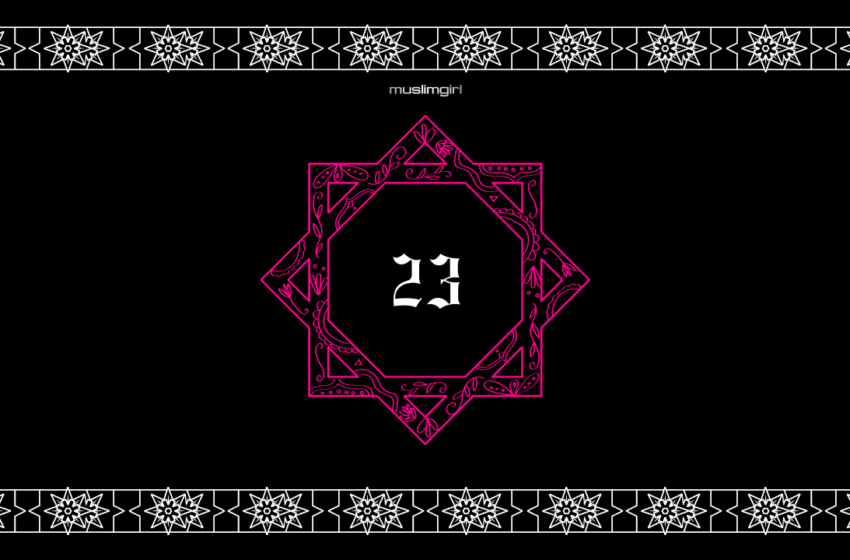
Juz 23 Takeaway: The Severe Consequences of Arrogance
As we continue with Surah Yaseen in Juz 23, we are given three signs of creation and miracles. The first sign was to bring back dead land to life with trees, fruits, and produce. The second is the seamless transition from day to night and how one does not overtake another. The third sign is the power of humans to build ships and other means of transportation. The knowledge and intelligence to create such enormities are a blessing from Allah SWT.
Allah’s rewards for the good-doers
There is a clear difference in treatment and consequences highlighted to the believers and disbelievers, a trait commonly mentioned in the Quran. Believers in particular are promised pleasant shade and the ability to recline on thrones. But the line that moves me to tears is the simplest yet grandest line ever:
[And it will be said to them] “Salamun” [peace be upon you], a word from the Lord, most Merciful
— Quran (36:58)
To think that your reward is so high that even Allah (SWT) may reward you with a Salaam (prayer of peace) is something I cannot fathom my mind around. How humble must a Lord be to invoke a prayer of blessing upon you? SubhanAllah.
This is the same Lord, mind you, that has the power to will anything in the universe with a simple, “Be! And it is.”
Verily, His Command, when He intends a thing, is only that He says to it, “Be!” and it is!
— Quran (36:82)
How humble and grand is his position that even at such lengths, the love and happiness of His creation stands at the forefront?
The story of sacrificing the son of Abraham (as)
Surah Saffat discusses the blind and irrefutable faith that Prophet Abraham (as) had when given a call to sacrifice his son. For any father, the loss of a son is far too much, but the offer is not only accepted but it is thought of as indisputable. In the following verse, we hear his son, Ismail speak with utter conviction.
Then when the boy reached the age to work with him, Abraham said, “O my dear son! I have seen in a dream that I ˹must˺ sacrifice you. So tell me what you think.” He replied, “O my dear father! Do as you are commanded. Allah willing, you will find me steadfast.”
— Quran (37:102)
Allah (SWT) in his infinite mercy and compassion sent a call to Abraham (as) that his test was completed and pursuit to Allah (SWT) granted them infinite blessings.
There are two important distinctions between Islam versus Christianity and Judaism in this story. First, the Quran states that the sacrifice was of the first one, Ismail. Where the people of the book believe it was the second son, Isaac.
Second, the Muslim point of view shows that the decision for the sacrifice was not only Abraham’s but also that of his son. He was equally prepared to submit to the will of God as was Abraham willing to sacrifice his son for Allah (SWT).
Women being viewed as inferior by disbelievers
Another chain of verses from this surah I found particularly notable was the traits of the disbelievers who viewed women as less than. It also discussed the commonly associated beliefs that Allah (SWT) had a child.
Ask them ˹O Prophet˺ if your Lord has daughters, while the pagans ˹prefer to˺ have sons. Or ˹ask them˺ if We created the angels as females right before their eyes. Indeed, it is one of their ˹outrageous˺ fabrications to say, “Allah has children.” They are simply liars. Has He chosen daughters over sons? What is the matter with you? How do you judge? Will you not then be mindful? Or do you have ˹any˺ compelling proof? Then bring ˹us˺ your scripture, if what you say is true!
— Quran (37:149-157)
Even a group of Arabs associated jinns with Allah (SWT) were refuted in their claims in the following verses. The association of partners and kin to Allah (SWT), therefore, is blatantly rejected.
The true sin of satan
Held to a high status are also the commands of Allah (SWT) which Iblees (Satan) sought to challenge in Surah Saad. When asked to prostrate to Prophet Adam, all angels obeyed Allah except for Iblees. 1 Disobedience of Allah (SWT) is held in high regard, and Iblees’s act of arrogance had in it connotations that his judgment was better than Allah’s (SWT). 2
So the angels prostrated — all of them entirely, except Iblees; he was arrogant and became among the disbelievers.
— Quran (38:73-74)
When I first heard of this story, I remember being caught off guard. Why did Iblees risk his lofty status as a Jinn allowed to be with Angels and refuse to bow in front of Adam? But the answer lies in his arrogance and pride in that very stature — he believed he was superior to Adam. Allah (SWT) commanding Iblees to bow to a creation he felt was beneath him was the flaw that made him fall from grace. It is important to note that arrogance with where you are and what you have accomplished is a dangerous game to play. Because you never know where your pride can lead you.
Have you read Juz 23 yet? If so, what are your personal reflections? Feel free to slide into our DMs and let us know!



